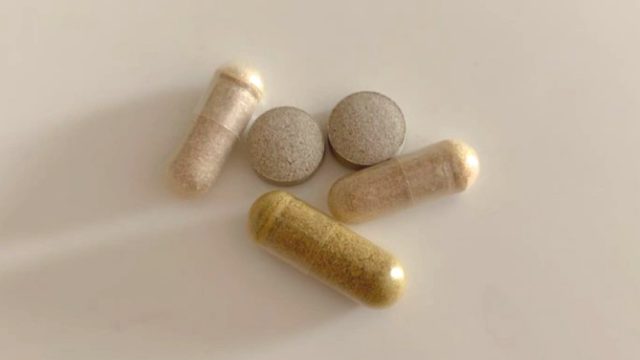How to Take Care of Your Hair and Skin During Menopause
Practical tips for maintaining a radiant complexion and shiny hair

For many women, hair and skin are more than just physical attributes; they are integral to one’s identity, confidence, and self-expression. When menopause arrives, it can bring a host of changes that affect these aspects of our appearance.
“Hormones, in general, are like a symphony orchestra of chemistry in our bodies that can affect our hair and skin in many ways,” says Los Angeles dermatologist Dr. Nancy Samolitis, MD, FAAD, co-founder and medical director of Facile and Facile Skincare. “Hormones signal cells to behave in a certain way, so changes in hormones can affect normal cellular function.”
By understanding how menopause impacts your hair and skin, you can take proactive steps to maintain its health and continue to enjoy the shiny hair and radiant complexion you’ve always known.
Menopause and Hair
As you transition through menopause, your hair may become thinner or more brittle. This change is primarily due to decreased estrogen levels, which affects the hair growth cycle. According to a study published in the Journal of Menopausal Medicine, around 40% of women experience hair thinning during menopause. Research indicates reduced estrogen can lead to shorter hair growth phases and increased hair shedding.
“In general, hair growth usually slows down, and hairs become finer and miniaturized with aging,” explains Dr. Samolitis. Genetics may also be at play: “Some people are genetically prone to the type of hair loss known as androgenetic alopecia, and this is because their hair follicles are more sensitive to the effects of hormone changes.”
Proactive Steps
- Nutrition: Focus on a diet rich in vitamins and minerals essential for hair health. Foods high in vitamins A, C, D, E, biotin, iron, and omega-3 fatty acids can support hair growth.
- Gentle Hair Care: Avoid harsh hair treatments and use gentle, sulfate-free shampoos and conditioners. Regular scalp massages can also stimulate hair follicles and promote growth. You may also want to consider washing your hair less and cutting back on using heat during styling.
- Supplements: Consider supplements like biotin, collagen, and other hair growth vitamins. Please consult with your healthcare provider to ensure they are suitable for you.
- Medical Treatments: Many modalities for treating hair loss in menopause are similar to treating hair loss in men who are genetically prone to advancing aging, explains Dr. Samolitis. “These include medications and supplements that block the effects of dihydrotestosterone (DHT) on the hair follicle, topical and oral minoxidil to improve blood flow and stimulate growth, anti-inflammatory and antioxidant oral supplements and topical serums, and injections of platelet-rich plasma (PRP) to strengthen and stimulate growth.” Talk to your dermatologist for guidance tailored to your specific needs.
Menopause and Skin
“Declining levels of estrogen and progesterone cause skin to become weaker, more fragile, thin, and more dry because of the decline in natural oil production,” notes Dr. Samolitis. A comprehensive review in the Journal of Clinical and Aesthetic Dermatology indicates that up to 30% of collagen is lost in the first five years after menopause, leading to noticeable skin texture and firmness changes.
Proactive Steps:
- Hydration: Keeping your skin hydrated is paramount. Choose a moisturizer rich in hydrating ingredients such as hyaluronic acid, glycerin, and ceramides. These ingredients help draw moisture into the skin and lock it in, preventing dryness. To maximize absorption, apply the moisturizer twice daily, preferably after cleansing when your skin is still damp.
- Sun Protection: “Because menopause usually occurs at ages 45+, it also happens to coincide with an accumulation of chronic UV exposure, and the effects can seem more dramatic due to the combination of these,” notes Dr. Samolitis. “Skin that is exposed to the sun daily, such as that on the face, neck, chest, arms, and hands, tend to experience the most change.” Always apply sunscreen with at least SPF 30 to protect your skin from harmful UV rays, which can exacerbate aging signs.
- Healthy Lifestyle: Maintaining a balanced diet rich in antioxidants and staying hydrated by drinking plenty of water can improve your skin’s appearance. Regular exercise also boosts circulation, delivering nutrients to the skin.
- Skincare Routine and Professional Treatments: In addition to in-office resurfacing procedures like microneedling and lasers, Dr. Samolitis recommends using a topical retinoid (over-the-counter retinol or prescribed tretinoin) daily. “We are just starting to see some excellent responses to topical estrogen compounds used sparingly in low doses to reduce the risk of increasing circulating estrogen,” she adds.
Incorporating HRT as Part of a Holistic Approach
Don’t forget that hormone replacement therapy (HRT) can help mitigate some of the adverse effects of menopause on skin and hair in conjunction with some of the practices above. Estrogen plays a crucial role in maintaining the hair growth cycle, and by restoring its levels, HRT can help prolong the hair growth phase and reduce hair loss. Estrogen is also essential for collagen production, maintaining skin elasticity and firmness. HRT can help boost collagen levels, resulting in firmer and more elastic skin. Additionally, HRT can enhance the skin’s ability to retain moisture, reducing dryness and improving overall hydration.
By focusing on proper nutrition, gentle care, and routines and treatments under the guidance of a dermatologist, you can look forward to continuing to look and feel your best during this next chapter.



